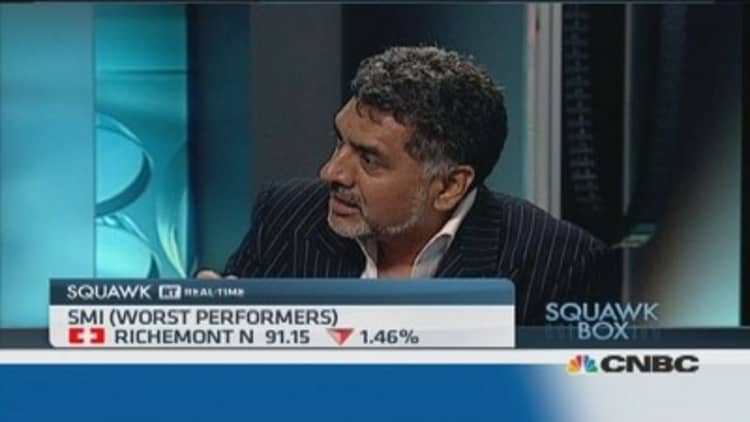
Thinking of leaving the daily commute behind to start that small cheese-making business of which you've always dreamed? Perhaps now is the right time to do so. After several tough years, the British economy is showing signs of recovery and small business owners are finding reasons to be cheerful.
According to the Federation of Small Businesses, confidence among small businesses in the U.K. is at an all-time high. Forty percent reported an increase in revenues for the third quarter of 2013, while 54 percent said they planned to expand over the next year.
This optimism is shared by leading U.K. entrepreneur, James Caan, who said he was encouraged by the government's positive attitude towards business start-ups.
"They've been encouraging the banks, they've been providing start-up capital, they're relaxing taxation," Caan told CNBC on Monday. "I would say, right now, if I was an entrepreneur, Britain would be the number one place I would look to start a business."
However, Mike Cherry, the policy chairman of the Federation of Small Businesses, called for more clarity in government policy.
"Government has helped 30,000 businesses through its support schemes in the past two years," Cherry told CNBC. "But new businesses would benefit from more unified and coherent support,as currently not all employers are aware of the help that is available to them."
There are also lingering concerns that big banks aren't lending enough to entrepreneurs. The Bank of England's most recent report on lending in the UK economy, Trends in Lending, was published in July 2013.
It showed that net lending to small and medium businesses was negative throughout 2012, and that while lending to businesses picked up in 2013, it was still less than loan repayments made by small to medium sized companies.
However, Hayley Conboy, head of enterprise at the Confederation of British Industry, a business lobbying group, argued that this had helped stimulate the provision of alternative finance sources, such as crowd funding sites, business angels and "challenger" banks.
"What we've seen after the financial crisis is that small-and medium-sized businesses were over-reliant on traditional forms of finance," Conboy told CNBC. "The fact that we're seeing a growth in alternative finance providers, and alternative finance options, is only a good thing. It's a positive that the U.K. is now diversifying the different types of finance available."
Consumers have a role to play too, and December 7 will see the UK.'s first "Small Business Saturday", when customers will be encouraged to get on their high street and support local independent businesses.
Amid the positivity and confidence, there is a note of caution to be struck. The U.K. economy is still in its early stages of recovery and small businesses should remain watchful, said Conboy.
"Any savvy business owner will be monitoring the markets, but our main message is a positive one," she said. "If you've got the right product, the right service and the right technology, then have the confidence and ambition to maximize and commercialize that right now, because support is available."

